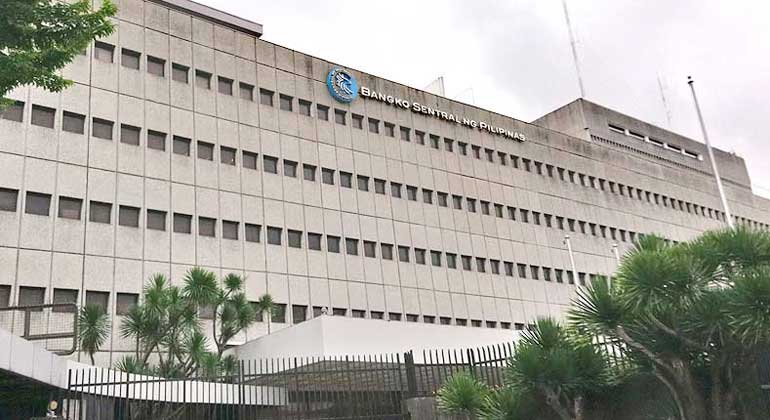Term deposit yields drop

YIELDS ON THE central bank’s term deposit facility (TDF) continued to go down despite lower bids on hints of possible easing from the central bank to cushion the economy against risks from the continued spread of the coronavirus disease 2019 (COVID-19).
Tenders for the Bangko Sentral ng Pilipinas’ (BSP) term deposits amounted to P168.216 billion on Wednesday, higher than the P120 billion auctioned off by the central bank. However, this was lower than the P173.668 billion seen last week for the P130-billion offer.
Broken down, tenders for the one-week papers hit P48.697 billion, failing to fill the P50 billion on offer and also lower than the P50.263 billion in tenders seen last week for the P40 billion offered by the BSP.
Yields for the tenor ranged from 3.75% to 3.85%, a slightly slimmer margin compared to the 3.75% to 3.8844% logged last week. This brought average rate to 3.7821%, inching down by 4.29 basis points (bps) from last week’s 3.825%.
Meanwhile, the 14-day term deposits attracted bids totaling P52.454 billion, higher than the P40 billion on offer but lower than the P69.91 billion in tenders logged last week for the P50 billion on the auction block.
Lenders asked for returns from 3.765% to 3.85%, coming from the 3.8 to 3.9% band seen on Wednesday last week. This brought the average rate to 3.8102%, down by 5.52 bps from the 3.8654% seen on Feb. 26.
On the other hand, bids for the 28-day papers hit P67.065 billion, more than double the P30 billion up for grabs and also surpassing the P53.495 billion worth of tenders logged last week for the P40-billion offering.
Yields sought by banks for the one-month tenor ranged from 3.75% to 3.8%, a narrower margin compared to the 3.785% to 3.95% seen last week. With this, the average rate for the 28-day papers settled at 3.786%, inching down by 10.58 bps from the 3.8918% seen a week ago.
Analysts said the lower rates came after new hints of further easing from the BSP chief.
“The bigger week-on-week declines on the BSP TDF auction yields may have to do with increased market expectations that the BSP could have greater leeway to make any further cuts on local policy rates,” Rizal Commercial Banking Corp. (RCBC) Chief Economist Michael L. Ricafort said in an e-mail.
“Expectations for eventual policy easing from the BSP helped push bond yields lower after the Fed cut policy rates by 50 bps overnight in an emergency move,” ING Bank NV-Manila Senior Economist Nicholas Antonio T. Mapa said in an e-mailed response.
“What’s more interesting was the oversubscription in the 28-day tenor with investors locking in higher yields for as long as they can knowing fully well that rates are likely on the downtrend from here,” he said.
The US Federal Reserve on Tuesday slashed its key rate by 50 bps in a surprise move to temper economic risks that could arise from the coronavirus outbreak.
Meanwhile, BSP Governor Benjamin E. Diokno said earlier this week another 25-bp cut is on the table this year, adding that they will assess anew the impact of the virus on the economy during the Monetary Board’s policy-setting meeting on March 19. Last week, he also said the central bank is not ruling out cuts worth 50 to 75 bps this year.
After pausing in the latter part of 2019 following 75 bps in cuts, the Monetary Board slashed benchmark rates by another 25 bps on Feb. 6 as a preemptive move to cushion the country from the impact of COVID-19, partially offsetting the 175 bps in hikes done in 2018.
The rates on the BSP’s overnight reverse repurchase, overnight lending and deposit facilities stand at 3.75%, 4.25% and 3.25%, respectively.
RCBC’s Mr. Ricafort said the market will take cues from local data in the weeks ahead.
“The next major factor is the latest inflation data for the month of February to be announced on March 5, as a source of new market leads, especially for local interest rate benchmarks, including BSP TDF auction yields,” he said.
A BusinessWorld poll of 17 economists last week yielded a three percent median estimate for February headline inflation, falling into the upper end of the 2.4-3.2% estimate penciled by the BSP on Friday. — L.W.T. Noble



